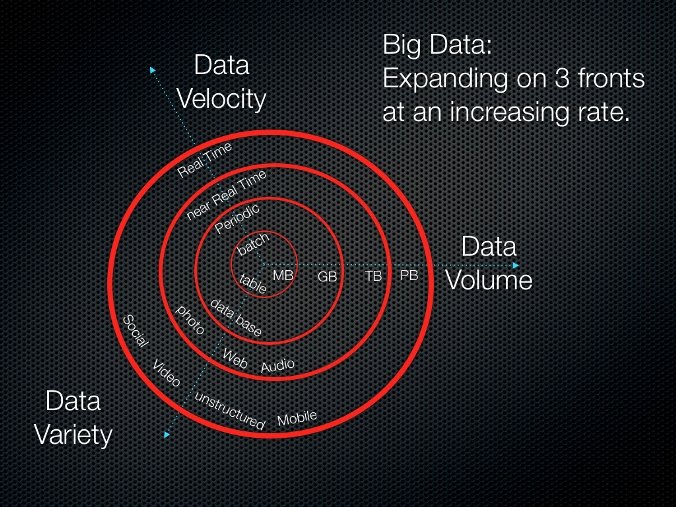 ![BigData.001.jpg]
![BigData.001.jpg]
Big data is an evolving term that describes any voluminous amount of structured, semistructured and unstructured data that has the potential to be mined for information.Big data is often characterized by 3Vs: the extreme volume of data, the wide variety of data types and the velocity at which the data must be processed. Although big data doesn't equate to any specific volume of data, the term is often used to describe terabytes, petabytes and even exabytes of data captured over time.
Breaking down the 3Vs of big data
Such voluminous data can come from myriad different sources, such as business sales records, the collected results of scientific experiments or real-time sensors used in the internet of things. Data may be raw or preprocessed using separate software tools before analytics are applied.
Data may also exist in a wide variety of file types, including structured data, such as SQL database stores; unstructured data, such as document files; or streaming data from sensors. Further, big data may involve multiple, simultaneous data sources, which may not otherwise be integrated. For example, a big data analytics project may attempt to gauge a product's success and future sales by correlating past sales data, return data and online buyer review data for that product.
The big data 3Vs
Finally, velocity refers to the speed at which big data must be analyzed. Every big data analytics project will ingest, correlate and analyze the data sources, and then render an answer or result based on an overarching query. This means human analysts must have a detailed understanding of the available data and possess some sense of what answer they're looking for.
How big data works.
Velocity is also meaningful, as big data analysis expands into fields like machine learning and artificial intelligence, where analytical processes mimic perception by finding and using patterns in the collected data.
Hi! I am a robot. I just upvoted you! I found similar content that readers might be interested in:
http://searchcloudcomputing.techtarget.com/definition/big-data-Big-Data